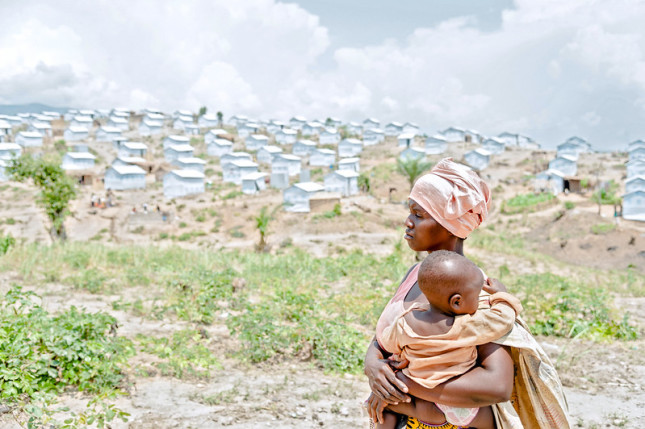-
New Security Brief | Converging Risks: Demographic Trends, Gender Inequity, and Security Challenges in the Sahel
April 4, 2022 By Wilson Center Staff
Security conditions in the Sahel are rapidly deteriorating. Since 2016, the region has witnessed a 16-fold increase in terrorist attacks. In Burkina Faso, Chad, Mali, Mauritania, and Niger, 10.5 million people are facing starvation, and with climate-related disasters increasing and intensifying in the region, food insecurity is projected to rise. Against this backdrop, rapid population growth is outpacing governments’ ability to provide access to basic services. These pressures have transformed the central Sahel into the epicenter of a forced displacement crisis, with dire long-term and global humanitarian consequences that reverberate well beyond the region’s borders.
Governments in the Sahel—the poorest region in the world—struggle to meet the basic needs of their rapidly growing populations. The region’s persistently youthful, high-fertility populations show no signs of decelerating. Birth rates are three to four times higher in the Sahel than in other parts of the world. Estimates indicate that the region’s total population size will more than double by mid-century and the global trend of urbanization will extend to the Sahel, with 50 percent of Sahelians living in urban areas by 2045.
The challenges facing Sahelian countries are mutually reinforcing—but so are their solutions. In a new policy brief, “Converging Risks: Demographic Trends, Gender Inequity, and Security Challenges in the Sahel,” the Wilson Center’s Environmental Change & Security Program and Maternal Health Initiative show that while family planning and girls’ education are often disconnected from the broader security and development discourse, investments in these two areas can yield a wide array of economic and social benefits that simultaneously advance multiple development and security goals.
Converging Risks: Demograph… by The Wilson Center
Increasing girls’ school enrollment while expanding access to family planning services allows couples to delay the birth of their first child, facilitates healthier spacing of births, permits women to cease childbearing when they choose, and allows women to increase economic participation.
Yet, despite the demonstrated high returns on investments in family planning and girls’ education, such investments have not been prioritized in international, regional, and national spending among Sahelian countries. This gap amounts to more than a set of missed opportunities for women and girls—it fuels the worsening of conditions such as food insecurity, unemployment, displacement, gender-based violence and discrimination, and ultimately weakens governance.
Evidence shows that increasing efforts to boost girls’ education, curb child marriage, and ensure access to voluntary family planning not only advances the human rights of women and girls, but also helps to curb insecurity and strengthen governance—benefiting society as a whole. To interrupt these worsening cycles of poverty and instability, the international community must partner with Sahelian communities and governments to increase investments in women and girls.
Sources: Africa Center for Strategic Studies, Atlantic Council, Population Matters, The Hill, United Nations.
Photo Credit: When her husband was arrested during the 2015 political crisis, Luscie, 32, fled the Bujumbura province in Burundi with her eight children, with only the clothes on their backs. Since then they have been refugees at the Lusenda camp in DRC. Photo courtesy of Flickr User UN Women.
 A Publication of the Stimson Center.
A Publication of the Stimson Center.



